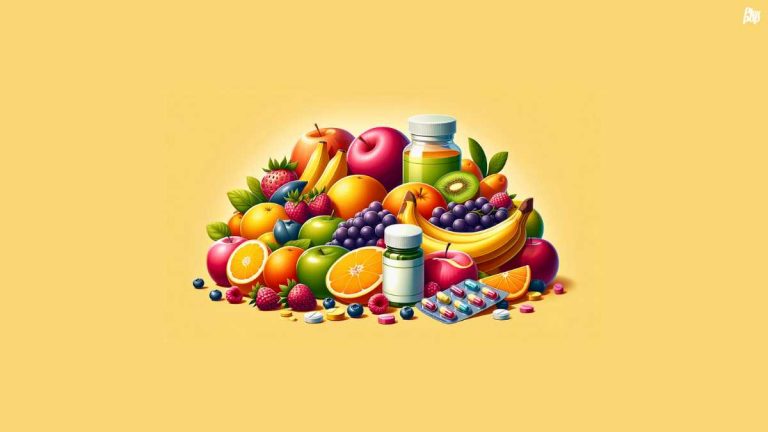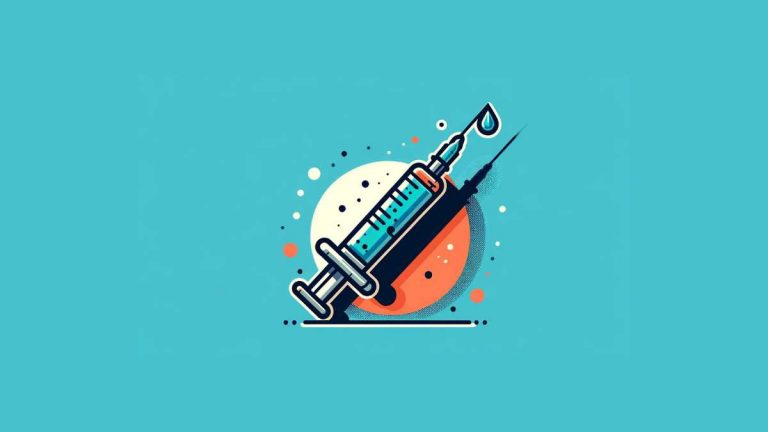Reducing added sugars in our daily diets has become a critical health imperative in contemporary society. As the popularity of processed and convenient foods increases, so does the amount of hidden sugars in our meals. These sugars are often disguised under different names and can lead to health problems like obesity, diabetes, and heart disease. Reducing added sugars isn’t just about changing our diets, but it’s also about education, awareness, and taking deliberate action.
This article aims to provide a complete guide to help you understand and effectively decrease the amount of added sugars you consume, leading to a healthier lifestyle.
What Are Added Sugars?
Added sugars are sugars and syrups put in foods during preparation or processing. Unlike natural sugars found in fruits and milk, added sugars contribute empty calories without essential nutrients.
You might be surprised to learn that added sugars are not just in sweets and desserts. They’re also found in seemingly healthy foods like yogurt, granola, and even whole-grain bread. Recognizing these hidden sugars requires a keen eye and a commitment to reading food labels.
The Many Names of Added Sugar
Identifying added sugars on food labels can be difficult as sugar often goes by many different names and is adept at hiding in our food. To help you recognize sugar’s various aliases, we’ve put together a detailed guide below:
- Sucrose: This is the scientific name for table sugar, a combination of glucose and fructose.
- High-Fructose Corn Syrup (HFCS): A common sweetener in processed foods and beverages, HFCS is made from corn starch and contains a high proportion of fructose.
- Glucose: A simple sugar found in plants, glucose is often used in conjunction with other sugars in processed foods.
- Fructose: Found naturally in fruits, when used as an added sugar, fructose can contribute to various health problems.
- Dextrose: This form of glucose is derived from starches and is commonly found in baked goods.
- Maltose: Often found in malted beverages and beers, maltose is a sugar made from malt.
- Lactose: Though naturally found in milk, lactose is sometimes added to processed foods.
- Agave Nectar: Marketed as a healthy alternative, agave nectar is high in fructose and can have similar effects as other added sugars.
- Cane Juice and Cane Syrup: Derived from sugar cane, these sweeteners are often found in organic and natural products.
- Honey: While natural, honey is still a form of sugar and can have similar effects on blood sugar levels.
- Molasses: This thick syrup is a byproduct of sugar production and is used in various baked goods and sauces.
- Turbinado Sugar: Often marketed as raw sugar, turbinado sugar is partially refined sugar cane extract.
- Fruit Juice Concentrates: These are used to sweeten many processed foods, and while they come from fruit, they lack the fiber and nutrients found in whole fruit.
Food manufacturers may use several different types of sugar in one product, making it difficult to recognize the total amount of added sugar. By familiarizing yourself with these various names, you can become a more informed consumer, capable of making healthier choices.

The Hidden Sources of Sugar
Processed Foods
- Breakfast Cereals: Even those labeled as “healthy” or “whole grain” often contain significant amounts of added sugars.
- Sauces and Dressings: Ketchup, barbecue sauce, and salad dressings can have sugar as a primary ingredient.
- Snack Bars: Energy and granola bars may seem like healthy choices, but they often contain sugars to enhance flavor.
Beverages
- Sodas: A single can of soda can contain up to 10 teaspoons of added sugar.
- Fruit Juices: Even 100% fruit juice can have as much sugar as soda. Opt for whole fruits instead.
- Flavored Coffees and Teas: Specialty coffee drinks are often loaded with syrups and sugars.
Bread and Baked Goods
- Commercial Breads: Even whole-grain bread can contain added sugars to improve taste and texture.
- Muffins and Pastries: These breakfast favorites are often high in sugars, even if they don’t taste overly sweet.
Dairy and Dairy Alternatives
- Flavored Yogurts: Fruit-flavored or low-fat yogurts often contain added sugars to enhance flavor.
- Non-Dairy Milks: Almond, soy, and other plant-based milks can have added sugars, especially the flavored varieties.
Restaurant Meals
- Fast Food: Even savory fast food items like burgers and fries can contain added sugars.
- Desserts and Cocktails: Restaurant desserts and mixed drinks are often sugar-laden.
The Health Risks
The dangers of consuming added sugars are extensive and affect various aspects of health. These risks range from physical conditions such as obesity and heart disease to possible effects on mental well-being and immunity. It is evident that reducing added sugars is not only a dietary choice but a crucial health necessity.
- Obesity: Consuming added sugars, particularly in sugary drinks, can result in higher calorie consumption without providing necessary nutrients. This can cause weight gain and obesity, which is a major risk factor for several chronic illnesses.
- Heart Disease: High sugar consumption has been linked to heart disease. It can lead to inflammation, high triglyceride levels, and insulin resistance, all of which are risk factors for heart disease.
- Type 2 Diabetes: Excessive sugar intake can cause insulin resistance, where the body’s cells no longer respond to insulin effectively. This can lead to higher blood sugar levels and eventually type 2 diabetes.
- Tooth Decay: Sugars provide food for bacteria in the mouth, leading to acid production that can erode tooth enamel. Regular consumption of foods high in added sugars can result in cavities and other dental problems.
- Fatty Liver Disease: Added sugars, particularly fructose, can be metabolized in the liver, where they can be turned into fat. Over time, this can contribute to non-alcoholic fatty liver disease (NAFLD), a growing health concern.
- Metabolic Syndrome: Metabolic syndrome is a group of health conditions that often occur together, which can lead to an increased risk of heart disease, stroke, and type 2 diabetes. Research shows that consuming a high amount of sugar is linked to several aspects of metabolic syndrome, such as high blood pressure and abdominal obesity.
- Mental Health Effects: Some studies have suggested a link between high sugar diets and mental health issues such as depression and anxiety. While the connection is not fully understood, it highlights the complex impact of sugar on overall well-being.
- Impact on the Immune System: Excessive sugar intake may suppress the immune system’s function, making the body more susceptible to infections. It can hinder the ability of white blood cells to fight off bacteria and viruses.
- Chronic Inflammation: Chronic inflammation is associated with many serious diseases, including cancer. Diets high in added sugars can contribute to inflammation in the body, potentially increasing the risk of various chronic conditions.

Strategies for Reducing Added Sugars:
1. Read Labels Carefully
Understanding food labels is the first step in identifying hidden sugars. Look for terms related to sugar and check the total sugar content. Familiarize yourself with the different names for sugar, such as sucrose, fructose, and high-fructose corn syrup.
2. Opt for Whole Foods
Whole, unprocessed foods like fruits, vegetables, and whole grains naturally contain less added sugar. By incorporating more of these into your diet, you can reduce your exposure to hidden sugars.
- Fruits and Vegetables: Use fresh or frozen fruits and vegetables without added sugars.
- Whole Grains: Choose whole-grain bread, pasta, and cereals that have no or minimal added sugars.
3. Experiment with Natural Sweeteners
Instead of using refined sugars, try natural sweeteners that can provide sweetness without the negative health effects.
- Honey: Rich in antioxidants, honey can be a healthier alternative to sugar.
- Maple Syrup: Contains minerals and antioxidants, and has a lower glycemic index than sugar.
- Stevia: A zero-calorie sweetener derived from a plant, suitable for those watching their weight.
4. Cook at Home
The kitchen offers a workshop for health craftsmanship. Preparing meals at home invites creativity and control over ingredients. Natural spices like cinnamon, vanilla, and ginger lend depth and sweetness in place of added sugars. Fruits incorporated into smoothies and oatmeal are naturally sweet and nutritious due to their fibre content. Through home cooking, we become authors of our well-being.
5. Beverages and Hydration
Beverages often harbour hidden health hazards, with sodas and fruit drinks dumping hazardous amounts of added sugar into our diets. To dodge this deluge, rethink your drink choices.
Water, plain or infused with fruit essences, hydrates without drawbacks. Herbal and green teas rely on natural flavours, not added sweeteners. Checking labels ensures other options like juices and smoothies don’t secretly spike sugar intake.
6. Snacking Wisely
Sweet treats and packaged snacks set sugar traps between meals. Yet nourishing options exist to sidestep these pitfalls. Fresh fruits and veggies deliver sweetness with fibre and nutrients intact. Yoghurts, nuts, seeds, or whole grain crackers offer tasty, wholesome fuel for busy days. Meal-prepping snacks at home, from trail mixes to energy bites, provide grab-and-go options without added sugars.
7. Educate Yourself and Your Family
When it comes to reducing added sugars, understanding the why and how is crucial. It’s not just about cutting out sweets; it’s about making informed choices that align with a healthier lifestyle.
Before you can educate others, you must understand the subject yourself. Research the effects of added sugars on health, read books, attend workshops, or consult with nutritionists.
Children are often the most vulnerable to the allure of sugary treats. Teaching them about the difference between natural and added sugars, and the impact on their health, can foster lifelong healthy habits. Your actions speak louder than words. Show your commitment to reducing added sugars by making consistent, healthy choices. Your family will likely follow your lead.
8. Setting Realistic Goals
Reducing added sugars begins with reasonable goals and gradual change. First, assess current consumption by tracking intake for several days — awareness motivates action. While guidelines offer reference points, personalized targets bring results.
Subtle switches add up — sparkling water instead of soda, fresh fruit rather than syrupy yoghurts. As taste buds adapt to less sweetness, more substantive reduction becomes possible. With patience and self-compassion, sweet temptations lose their grip.
Overcoming Sugar Cravings
Conquering sugar urges begin with meals that sustain energy, not just spike. Protein and fibre-filled breakfasts, lunches, and dinners provide lasting fullness and stable blood sugar. This takes the edge off midday cravings before they strike.
When a sweet tooth does come knocking, healthier swaps like fruit, yoghurt and even small dark chocolate portions answer the call. Proper hydration washes away false hunger — herbal teas can substitute soda or juice.
Armed with satisfying meals and alternatives, sugary temptations lose their grip. We discover our body seeks balance, not just sweetness. In time, cravings fade, and conscious eating prevails, clearing the path to improved well-being.
Reducing added sugars is not a fleeting trend but a necessary step towards a healthier lifestyle. By recognizing the hidden sources of sugar and implementing practical strategies, you can take control of your diet and your health.






Leave a Comment